I actually got my taste for competition in the Army. About ten years after starting to learn how to fight with a gun for self-defense. I only started competing because why not? Free ammo, right? And so, for several years, I shot on a competition team in the National Guard. These competitions mostly consisted of precision marksmanship-type stages. They were slow fire, and your hits on target were totaled for your points on that stage.
Why did I not compete before then? Well, I used to be firmly in the camp that I would never compete with my firearms. I didn’t want to muddle my tactics and self-defense skills with those of a competitive shooter. Competitive shooting was a different skill, different concept, and had different goals behind training and the use of a firearm. I wanted to train how I fought. In the self-defense world, your goal is to not only put rounds accurately on the target but do so while preventing getting shot and not sending rounds into bystanders. A very simplistic definition of self-defense shooting, but those are the main goals. In competition, no one is shooting back, and the only goal is speed, and in some competitions, hits on target for points. What I didn’t understand was what I would gain from competition shooting and how much my shooting skills would benefit from competing.
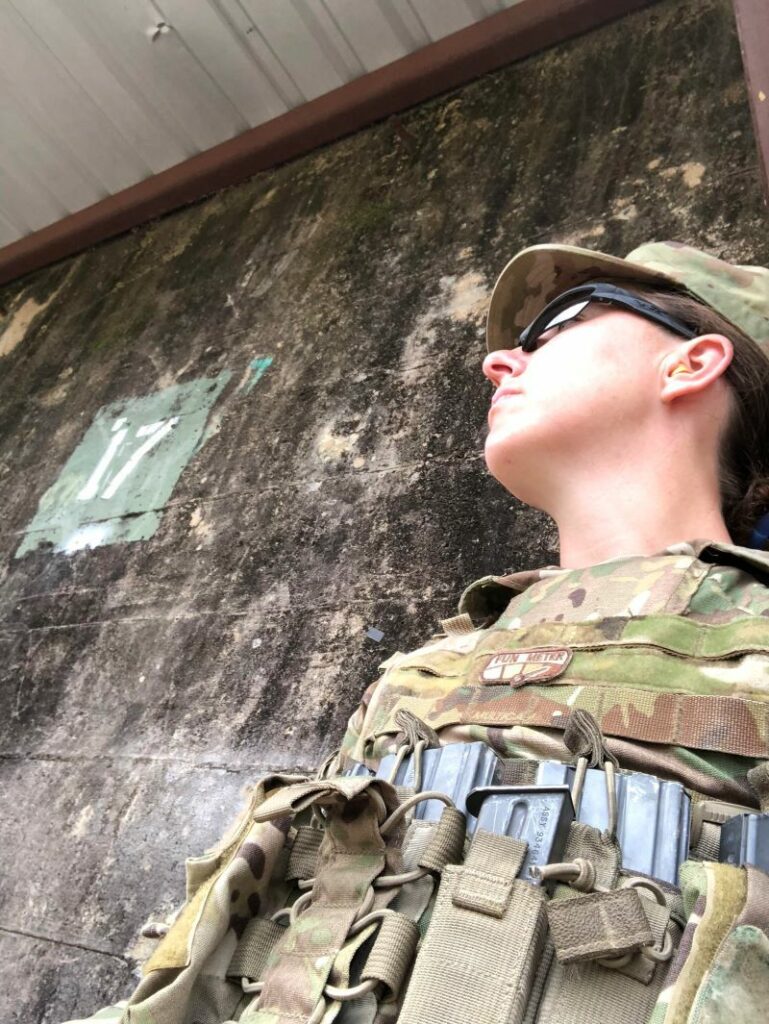
After catching the bug, I started competing in 3 gun/multi-gun. In multi-gun, there is a mixture of paper targets and steel targets. The idea is efficiency of movement and speed in shooting. Targets range from 5 yards to 500 yards, and the targetry and sequence can be quite complex. My movement has become much more proficient. I practice more often because I have something to practice for, and I have shot in all kinds of conditions giving me priceless experiences and knowledge. The experience has been amazing, so let’s talk about why I would recommend anyone who is serious about gaining shooting skills for survival and self-defense get into their local clubs to compete
The first and foremost is that local clubs have strict rules on the handling of firearms. These rules, along with club members and range officers, will help you learn how to safely handle your firearm while performing complex tasks in shooting, moving, reloading, etc. Safely handling firearms is always the most important aspect of your training. Whether that training is for survival, fun, or competition, being aware of your firearm while performing other tasks doesn’t come naturally. It is a skill that must be learned, and being in a club setting with people there to help you and remind you can be extremely helpful. If you are worried about the people there or their reaction to you, don’t. I have never met a more helpful and community-oriented group. If you ask for help, you will get it. If you are still timid, reach out to your local clubs, and I promise there will be someone who will take you under their wing and help you get ready for your first competition. (See details about practiscore below)
The two hardest parts of being proficient with a firearm are time and location. You need time to go to the range and a place that will allow you to practice the way you need to. Let’s talk about location. Most ranges are lanes with a bench that you fire from at one target. Most don’t allow dynamic movement, moving side to side or forward and backward. These are extremely important movements in the survival and self-defense world. Movement is essential to allow you to move to cover and concealment, create distance between you and an assailant, and many more things. Most places won’t allow you to draw from a holster either, and this is a necessary skill if you plan to carry your gun with you. Properly and safely being able to present from a holster will help you get first shots on target quicker. The next problem is that you can’t use multiple targets, target transitions and target identification help with multiple targets and make sure you don’t shoot the wrong person. Even if you have a location that will allow you to do all of these things, how much do you go and use it? When you go to the range, do you have the time or energy to set up different scenarios and train them? Believe me it’s hard. Just the setup to train the right way takes a long time, let alone actually training on it.
Competitions make getting your training hours in a lot easier. There are local clubs all over the United States, and almost every weekend, it seems there is a club match that you can join and get some training time. There are pistol/pistol carbine matches, rifle matches, shotgun, 2 gun (which is usually pistol and rifle), and multi-gun, which is all of the above in various combinations. The benefit of these clubs is that it is like-minded people coming together and working towards gaining better skills with their firearms. Many hands make light work. With club member help they set up complex scenarios and amazing targetry to give you experience with a broad range of targets and different staging. This is a great way to get more training with movement, shooting from a holster, target transitions, and mental acuity with a firearm. It will challenge you, and club matches usually last about a half a day, so it is not totally consuming. They are also cost effective as most clubs charge 20-50 dollars for a match. Plus, you now have a date on a calendar every month that is set aside for training, and you don’t have to spend hours or days beforehand setting up a range to have the same benefits. If you are like me, you will get involved in the community and want to get better, which will motivate you to train in-between matches as well.
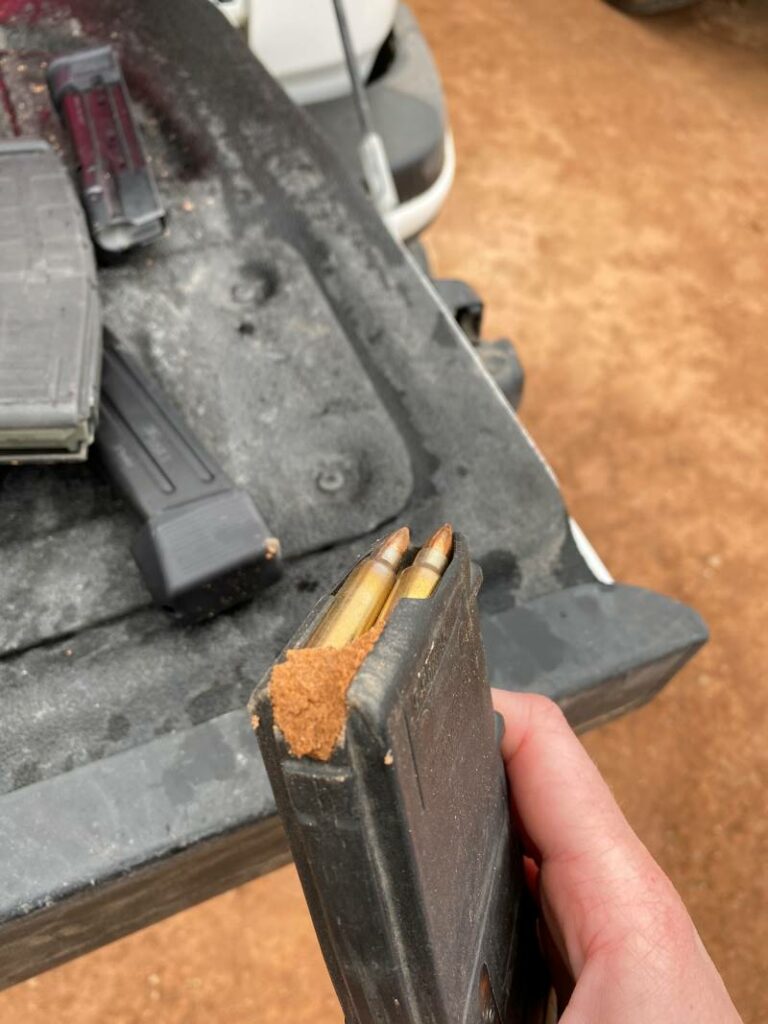
The next thing that competitions have helped with is learning my equipment and gear. It is one thing to take someone’s recommendations on gear and equipment and a whole other one to actually test that equipment in real life. My gear for the competition is definitely not the same as my everyday carry, but I have learned a lot about the capabilities of my guns, optics, and different kinds of materials putting them through competitions. I have also learned about how environmental factors affect equipment. I had the opportunity to shoot a Hard as Hell match. It is a more militaristic match with plate carriers, slinged rifles, and battle belts. This had us crawling under barbed wire, beating down a door, climbing up steep sand hills. It was literally hard as hell, no pun intended. I watched a lot of equipment break that day. Slings, plate carriers, magazines. Some of those people I am sure were upset, but they learned valuable things about their equipment, and they learned them in an environment that had very low consequences. Only pride was hurt that day. I have learned from shooting in the extreme hot of summer that my rifle guard cannot be touched with the naked hand. In all other conditions, it doesn’t heat up just in the hot summer sun. So I have learned to always carry gloves or something similar to Goontape to wrap my handguard in my shooting bag. In the cold, I learn that I get trigger freeze because I lose the feeling in my finger and can’t feel the take up in the trigger. So I have hot hands in my bag or gloves. I have learned that shooting into the sun with a holographic optic like an Eotech lets so much light in that you can’t see your reticle anymore. Shooting in the rain and snow is miserable. You have to focus on slowing down to avoid falling or dropping equipment, you have to change your movement to keep water out of your optic, and in general, everything is more challenging. The most important piece of equipment is, of course, you. I have learned how different environments affect my motivation, mood, and willpower to suck it up. It is a great feeling when you finish a competition in crappy conditions or with equipment failures, and you don’t give up. And that lesson is certainly one of the most valuable. Hurt pride and defeat, but a finisher is always better than comfort and a quitter.
The other value I see for joining competitions is seeing what other people are capable of, so you know that it is possible to shoot that fast and that accurate, and you can do it too. And the knowledge of what to work on when you go practice yourself. We can all go put holes in paper or swing a steel target but do you have specific skills that you work on every time you go to the range? Going to competitions highlights areas in that you struggle. If you flubbed every reload. Well, now that is what I am going to go home and practice. Suppose I struggle with target transitions or speeding up for close targets and slowing down for faraway targets. Well, now I can set that up for my own practice and drill myself. If the timer beep goes off and I forget everything I ever knew about guns and shooting, the mental game is what I need to focus on. This happens. That beep is a magical memory eraser. The point is, is that you have feedback honest feedback that you can’t fake or lie to yourself about because the proof is in the results.
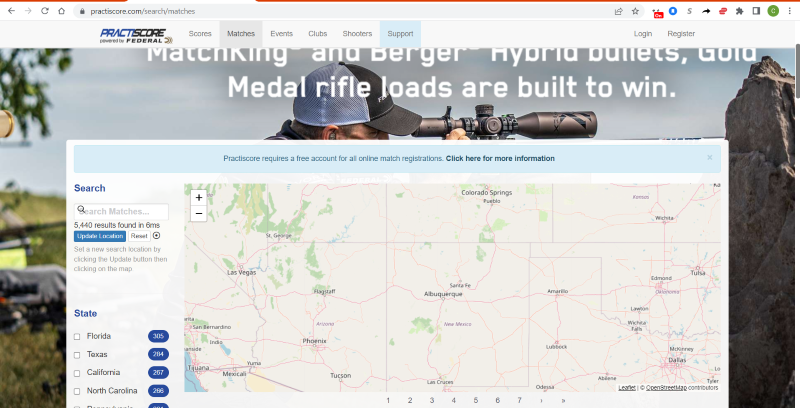
If this has persuaded you at all to look into competition shooting and it should. Check out the https://practiscore.com/ website, and they also have an app. You can type in where you live and find all the matches that are near you. I promise you will fail, and it will be amazing, and then you will learn and crush it.


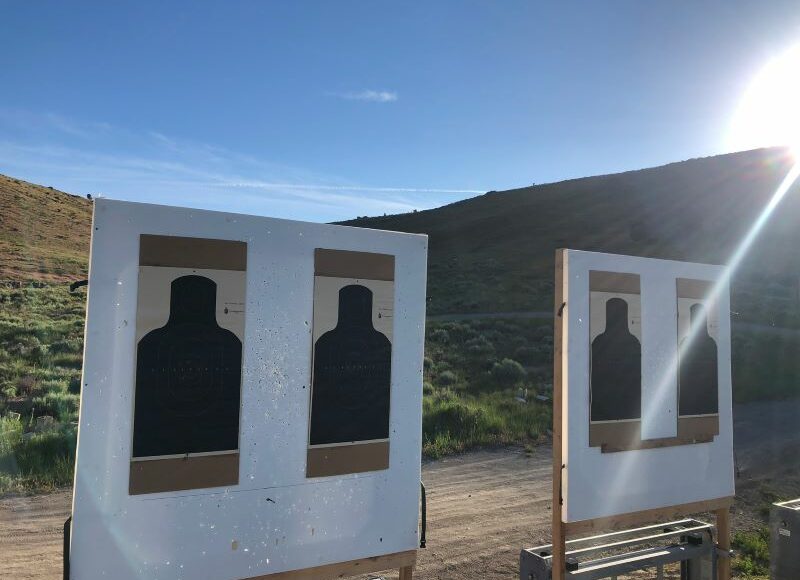


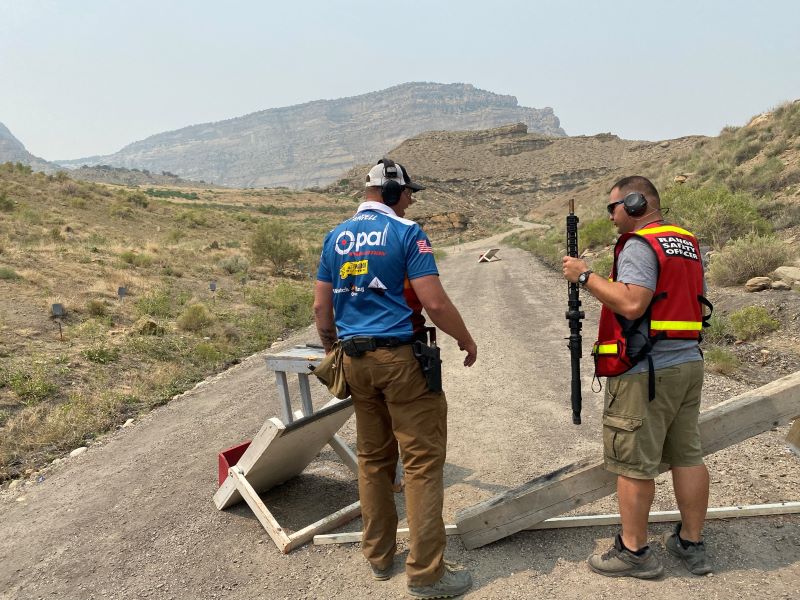
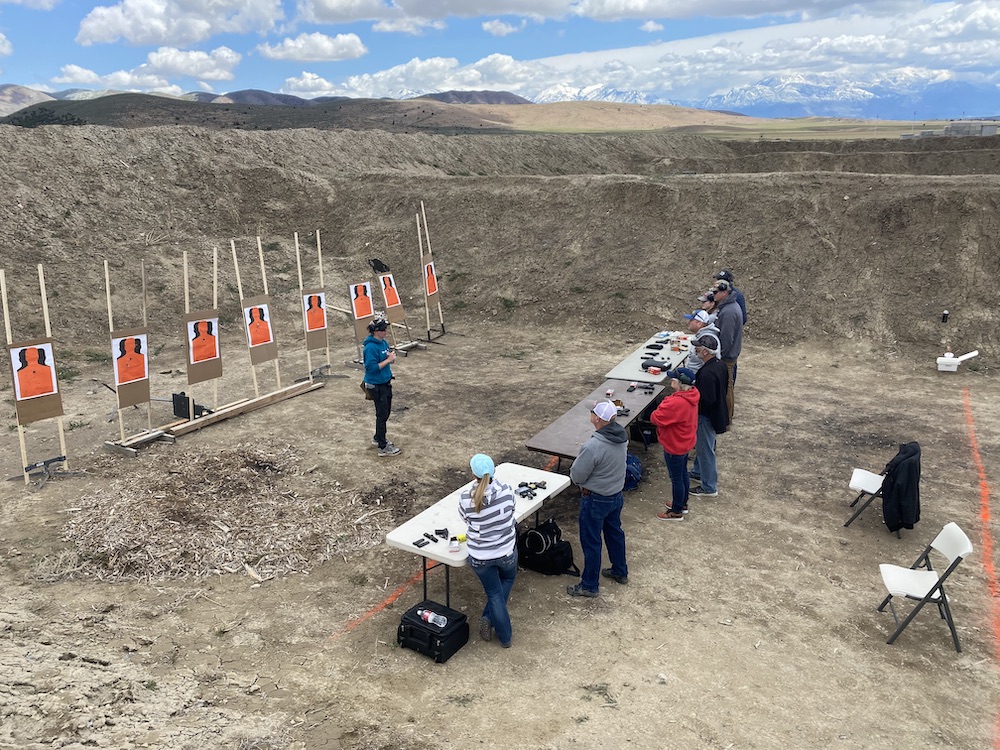

Debra Quincy | June 16, 2022
|
Nice article! I also train moving targets while moving, jumping or falling. Training with my hands tied and with left hand even though I’m right handed. Shooting from head stand or hanging in trees. Speed reloading and shooting from the hip. Even tried underwater shooting.
Ray | September 16, 2024
|
I used to enjoy it, about thirty or forty years ago. Now, not so much. T-shirts and blue jeans gave way to jerseys with manufacturers/sponsors names on them and shorts. The occasional shooter with LIMITED time and money for practice and occasional competition gave way to people that shoot fifty two weekends a year, three times during the week, and in between sit at reloading bench. It went from friendly to a ruthless crusade. For those that can enjoy it, drive on. Not me lads. Not any more.